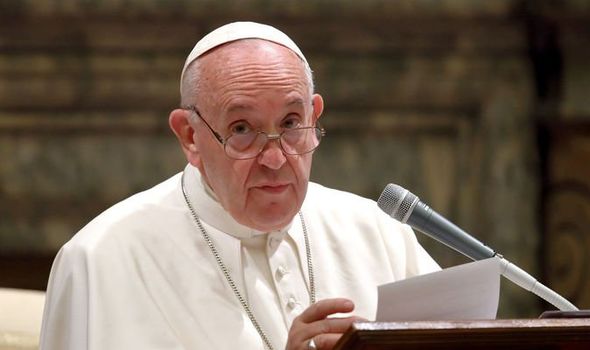The View
I spent some time recently with a group of very fine priests reflecting on their vocations and on their work as priests, work which is centred on sustaining ordinary people like me and you, sometimes in profoundly difficult circumstances, nourishing us and helping us on our journey home to the Lord who made us, who loves us and who holds us in the palm of his hand.
One of the difficulties of priesthood, I think, is that there are very few feedback loops! And it does happen that in the isolation and confidentiality of some of the work, men may become discouraged, not knowing what it is that they have achieved. But God knows.
Pope Francis, reflecting on the role of the priest in the secular world in which we live, said: “Those who are more exposed to the cold wind of uncertainty or religious indifference need to find in the person of the priest that robust faith which is like a torch in the night and like a rock to which to cling.”
Problems
However, one of the problems which he identified as obstructing the work of the Church is clericalism. Both priests and people have suffered from it.
Pope Francis defined it thus: “Clericalism arises from an elitist and exclusivist vision of vocation, that interprets the ministry received as a power to be exercised rather than as a free and generous service to be given.”
As I thought about Pope Francis’ definition and about the manifestations of clericalism which I have observed, it seems to me that it impacts on all the relationships which exist in the Church: the relationships between the Pope, cardinals, bishops, priests and people. It may even form a barrier between the people of God and God.
This clericalism is in part the reason why we are where we are as a Church today. The arrogance of power manifests itself in every situation in which one individual has power over another, whether it be politics, or government, or education or anything else. Such arrogance knows not, or perhaps heeds not, the Gospels. The Church which should have been a light, a leader in the darkness failed, just as the rest of society failed.
Pope Francis has referred to clericalism as an illness in the Church, an ailment that pretends “the Church” means “priests and bishops”, that ignores or minimises the God-given grace and talents of laypeople and that emphasises the authority of clerics over their obligation of service.
Clericalism impacts the Church in so many ways today – it exists in religious leaders who don’t spend time with their people, who don’t communicate with them, who still don’t answer letters.
A new way of being in the Church is emerging. It will be much richer”
Much of the rest of the world has come to terms with accountability and knows that it quite simply is not acceptable, or even right, to ignore people. The Church, in some respects, has yet to get there.
Clericalism exists in a failure to account properly for funds generously donated; and when the Church becomes available and engages more with those who have wealth or status, than with the poor, the marginalised, the homeless, the drug addicts, the alcoholics.
This Gospel of ours is fundamentally totally demanding. It requires of each of us that we see the face of Christ in all whom we meet, that we respond totally to those who need our help, that we are never too tired or too busy. It is actually profoundly difficult to be a true Catholic!
The Pope says the answer to clericalism lies in fidelity to the teaching of Christ. Francis teaches that priests must:
- “Be close to God in prayer.”
- “Be close to the bishop, always close to the bishop; without the bishop the Church does not move forward, without the bishop the priest can be a leader but he will not be a priest.”
- “Be close to fellow priests, near to each other.”
- “Be close to the people of God.”
“If one of these is missing,” Francis said, “the priest will not work and will slowly slide in the perversion of clericalism or in rigid attitudes.”
In talking of such “closeness” Francis presents challenges. For all of us, even priests, even St Teresa of Kolkata during her long life, there are days when God seems very far away. And closeness between priest and bishop is not, it would seem to me, the norm. Rather, it seems becoming a bishop separates a priest from his fellow priests.
Authority
Although his primary canonical duty is to his priests, the bishop is also ‘the authority.’
There has to be a further question. Who should the bishop stay close to? I don’t think it could be the Pope, so perhaps it is his brother bishops, and perhaps as a Church we need to think a little more about how our bishops are supported. There seems to be a gap. It is an important question. Having worked with bishops I know that, on occasion, they too can feel isolated, and even oppressed by the responsibilities of their office.
Then the Pope calls on priests to stay close to their brother priests. That is probably the easiest of the Pope’s demands, because I think that the formation process did create a closeness between men of the same seminary class. I am not sure that there is necessarily the same closeness between diocesan priests of different ages. That closeness is very important – that the older man is available to the young priest to help him and that the young priest knows the value of the years of experience of the older priest. What more could be done, though, to foster that closeness which the Pope says is so important for priests?
The final area about which the Pope spoke was closeness between priests and parishioners. One of the things some priests talk about is the loneliness and isolation of priesthood.
People/parishioners, like priests, come in many forms – they can be wonderful, generous, abusive, distressed, sick – mentally and physically. They can be demanding. They can be in great pain because of things that have happened to them: the death of a baby, a child lost to drugs, problems caring for an elderly relative, etc. And Irish villages and towns tend to be fairly closely knit places where privacy is at a premium.
Context
There are complex dynamics at work sometimes in this context. The relationships are changing. It requires maturity and a sense of responsibilities, an understanding of boundaries. All those things have to be factored into this new closeness. A new way of being in the Church is emerging. It will be much richer.
So the challenge for us all is to work out how to enable priests and people to work in a way which is collaborative, and which enables us to find in the priest “that robust faith, which is like a torch in the night and like a rock to which to cling”.
Then, it seems to me, we too must seek to emanate that Faith which brought people to join the early Christians.
The future of our Church lies in the parishes in which we live today.


 Nuala O’Loan
Nuala O’Loan Pope Francis
Photo: Getty images
Pope Francis
Photo: Getty images 